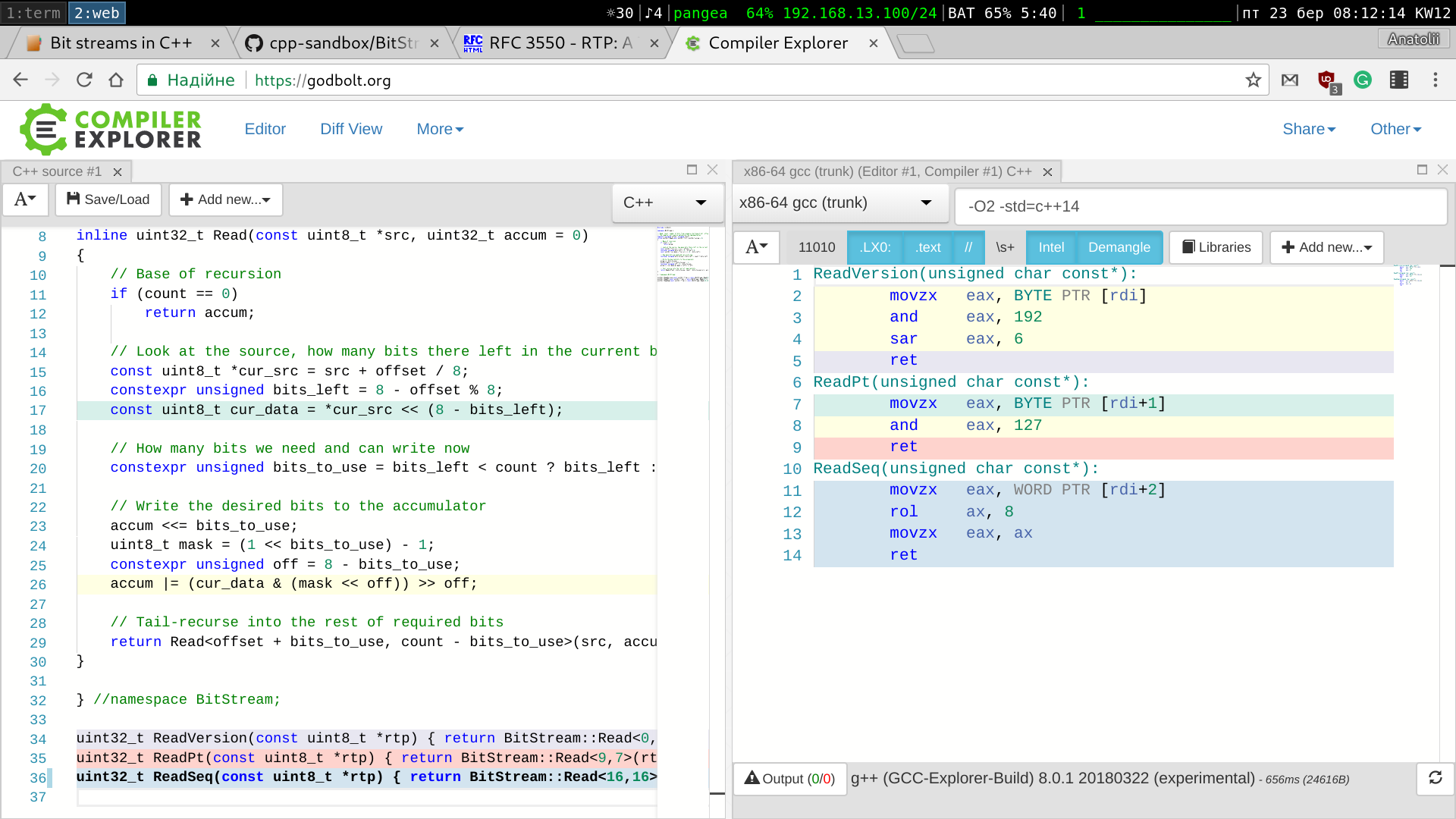Bit streams in C++
Reading and writing specific bits is a common task. This article reviews encountered methods and introduces C++ metaprogramming-style one. There are a few conventional techniques to do that:
- Apply bitwise operations manually — tedious and efficient
- Use bit fields — efficient, less tedious, but confusing and hardly portable across platforms with different endianness
- Create a custom class that would treat bit streams in run time — there are lots of examples in the web.
Here is another way, which is as efficient as manual code, but superb in terms of convenience. Let the compiler know in advance as much as possible, and it will be able to generate specific optimized code. Consider the source file BitStream.cpp. It defines two template functions:
// Read 'count' number of bits from a memory starting at bit 'offset'
// The compiler will easily optimize the implementation.
template <unsigned offset, unsigned count>
inline uint32_t Read(const uint8_t *src, uint32_t accum = 0);
// Write given value to the memory starting at 'offset' bit
// spanning 'count' bits
template <unsigned offset, unsigned count>
inline void Write(uint8_t *dst, uint32_t value);
For each combination of parameters offset and count, a specific function is
generated, which is merely few instructions long. And they are natural to use,
for example, consider parsing RTP header:
const uint8_t *packet = ...;
uint32_t V = Read<0,2>(packet);
uint32_t P = Read<2,1>(packet);
uint32_t X = Read<3,1>(packet);
uint32_t CC = Read<4,4>(packet);
uint16_t seqNum = Read<16,16>(packet);
As an illustration, see the generated code in the compiler explorer (link):

One drawback I can think of is the sensitivity of the generated code to optimizations options. Hence, the debug build may perform quite differently, which may become noticeable.